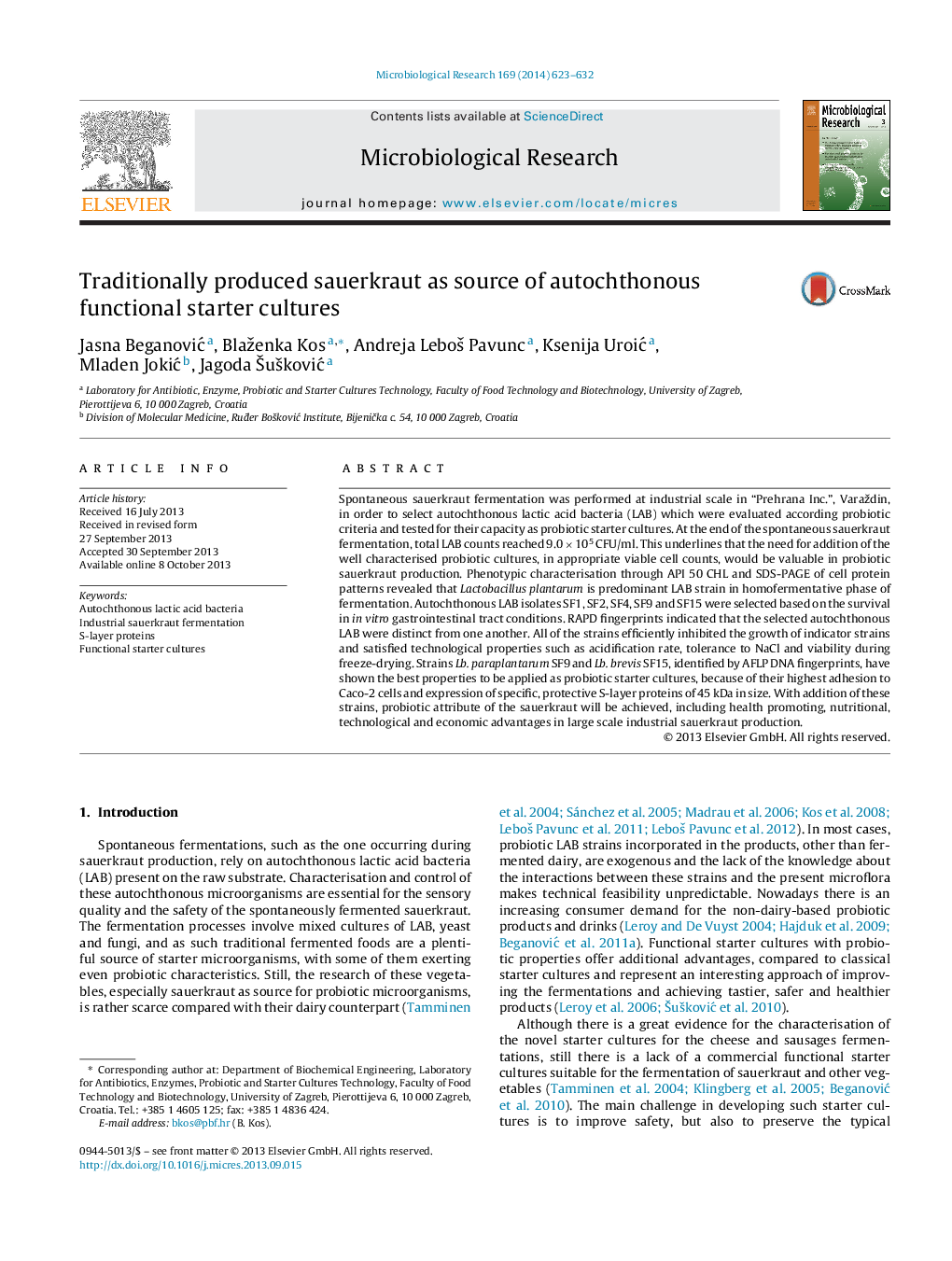| Article ID | Journal | Published Year | Pages | File Type |
|---|---|---|---|---|
| 2092238 | Microbiological Research | 2014 | 10 Pages |
Spontaneous sauerkraut fermentation was performed at industrial scale in “Prehrana Inc.”, Varaždin, in order to select autochthonous lactic acid bacteria (LAB) which were evaluated according probiotic criteria and tested for their capacity as probiotic starter cultures. At the end of the spontaneous sauerkraut fermentation, total LAB counts reached 9.0 × 105 CFU/ml. This underlines that the need for addition of the well characterised probiotic cultures, in appropriate viable cell counts, would be valuable in probiotic sauerkraut production. Phenotypic characterisation through API 50 CHL and SDS-PAGE of cell protein patterns revealed that Lactobacillus plantarum is predominant LAB strain in homofermentative phase of fermentation. Autochthonous LAB isolates SF1, SF2, SF4, SF9 and SF15 were selected based on the survival in in vitro gastrointestinal tract conditions. RAPD fingerprints indicated that the selected autochthonous LAB were distinct from one another. All of the strains efficiently inhibited the growth of indicator strains and satisfied technological properties such as acidification rate, tolerance to NaCl and viability during freeze-drying. Strains Lb. paraplantarum SF9 and Lb. brevis SF15, identified by AFLP DNA fingerprints, have shown the best properties to be applied as probiotic starter cultures, because of their highest adhesion to Caco-2 cells and expression of specific, protective S-layer proteins of 45 kDa in size. With addition of these strains, probiotic attribute of the sauerkraut will be achieved, including health promoting, nutritional, technological and economic advantages in large scale industrial sauerkraut production.
